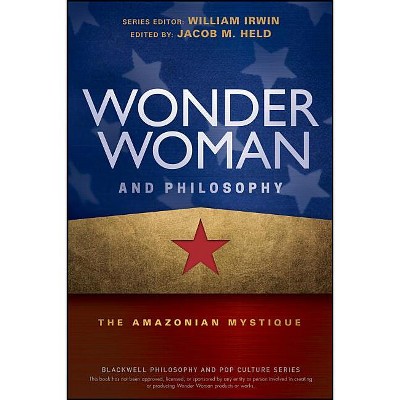About this item
Highlights
- Philosophy's Future: The Problem of Philosophical Progress diagnoses the state of philosophy as an academic discipline and calls it to account, inviting further reflection and dialogue on its cultural value and capacity for future evolution.
- About the Author: RUSSELL BLACKFORD is an Australian philosopher, legal scholar, and literary critic based at the University of Newcastle, New South Wales.
- 272 Pages
- Philosophy, Methodology
Description
Book Synopsis
Philosophy's Future: The Problem of Philosophical Progress diagnoses the state of philosophy as an academic discipline and calls it to account, inviting further reflection and dialogue on its cultural value and capacity for future evolution.
- Offers the most up-to-date treatment of the intellectual and cultural value of contemporary philosophy from a wide range of perspectives
- Features contributions from distinguished philosophers such as Frank Jackson, Karen Green, Timothy Williamson, Jessica Wilson, and many others
- Explores the ways philosophical investigations of logic, world, mind, and moral responsibility continue to shape the empirical and theoretical sciences
- Considers the role of contemporary philosophy in political issues such as women's rights, the discrimination of minorities, and public health
From the Back Cover
The ancient discipline of philosophy, at one time the central intellectual forum for analyzing and understanding the human condition, has come under threat. With the rise of specialized sciences, philosophy relinquished jurisdiction over the empirically and theoretically tractable, and so finds its currency in asking questions without definitive answers. This has resulted in numerous challenges to its continued intellectual authority and cultural value. Has philosophy indeed lost its way in hyperspecialization and self-absorption, retreating from the rest of the world's concerns? Does the view held by some leading scientists have the ring of truth--that 21st-century advances in physics and cognitive neuroscience have rendered the venerable discipline all but obsolete?
Philosophy's Future: The Problem of Philosophical Progress presents 17 newly commissioned essays which suggest a range of paths toward academic consensus on philosophy's deepest puzzles. Distinguished contemporary philosophers present competing views on the future of the field, acknowledging its susceptibility to fashion and bias while reaffirming its fundamental value. Essays explore how philosophical investigations of logic, the world, mind, and moral responsibility shape and contribute to the empirical and theoretical sciences in the quest for new knowledge. At the same time, the collection unearths a sense of unease that contemporary philosophy has lost touch with its core principles, and urges course correction before it is too late.
Original and thought-provoking, Philosophy's Future diagnoses the state of philosophy as an academic discipline and calls it to account, inviting further reflection and dialogue on its cultural value and capacity for future evolution.
Review Quotes
"Cogent and worth reading - particularly the essays by Massimo Pigliucci and Jessica Wilson. Also notable is the fine essay by Myisha Cherry, who argues forcefully that philosophers need to "leave the shade" and express their views clearly in accessible public debate. Hear, hear!" About the Author RUSSELL BLACKFORD is an Australian philosopher, legal scholar, and literary critic based at the University of Newcastle, New South Wales. His many books include Freedom of Religion and the Secular State (Wiley Blackwell, 2012), The Mystery of Moral Authority (2016) and The Tyranny of Opinion: Conformity and the Future of Liberalism (2019). DAMIEN BRODERICK is an award-winning Australian science and fiction writer, editor, and critical theorist, and a former Senior Fellow in the School of Culture and Communication at the University of Melbourne. He is the author or editor of some 74 books including, as co-editor with Russell Blackford, Intelligence Unbound: The Future of Uploaded and Machine Minds (Wiley Blackwell, 2014).
&, dash;Barbara Ellen Hannan, The Philosopher's Magazine
Shipping details
Return details
Trending Poetry












